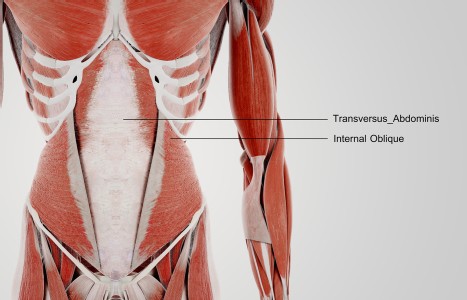TrA-2, my primary needle location, I needle 95% of the time and I think it works the best. You’ll know you have the right point location when you discover the muscle twitching when applying electric stimulation.
The Initial Examination: Getting to the Heart of the Matter, Part 10
In prior articles, I have discussed the importance of inquiring about a patient's relationships with regard to friendships, family and marital status/primary relationship. In this article, I will discuss inquiry into the subject of sex, an aspect of relationships that is often both highly personal to the patient, and of tremendous value to us diagnostically.
In inquiring about the various areas of a patient's life, I have, heretofore, emphasized the use of open-ended questions, which allow a patient simply to release, in their own way, whatever they deem significant in a particular area. Many of these "stream of consciousness" answers will reveal a treasure trove of diagnostic information about the patient. In asking about sex, which is for many people a highly personal and emotionally charged area, Professor Worsley suggested the question be phrased non-confrontationally, with questions like "Are you satisfied with the sexual side of your relationship?" This does not force a patient into an area in which they may not wish to go, allowing for a simple one-word answer. It also opens the door to the subject and lets the patient know they are free to express themselves with regard to their experience, views and feelings about sex, if they choose. Suffice it to say that simply bringing the subject up, in many cases, opens up a huge area of past or present trauma and concern.
It is not our job to pass judgment on behavior, but to use the diagnostic information we receive about this, or any other area of a person's life, to assist the patient to regain balance and harmony. In Classical Five-Element Acupuncture, we are interested in the patient's odor, color, sound and emotion, which will lead us to the patient's elemental Causative Factor. Any emotionally charged area is an opportunity to perceive, often with greater intensity, the sensory signals that the patient expresses.
With regard to discussion about sex, it is likely that if a patient is willing or unwilling to talk about the subject, we will in either case, perceive palpable changes in sound and emotion. Few people feel neutral about sex. A patient may, for example, express joy and laughter about a sexual experience that is, in reality, not appropriate for humor. We feel the inappropriateness as a jarring in ourselves, and it gives us useful information about a patient's Fire element. Another patient may present the other extreme: sadness even in the experience of love, closeness and intimacy. Another patient may seem to be begging for sympathy and understanding: "How could they have treated me like that?" This response may alert us to an imbalance in Earth. Another may be recycling old, dead sexual encounters with shame, remorse, guilt and grief, unable to let go, pointing to the Metal element. Another may be utterly terrified of sex and intimacy, continually needing reassurance. Contrarily, they may act utterly fearless and reckless, pointing to imbalance in the Water element. Another may be angry, perhaps using sex as a way of "getting even" and discharging frustration; emotions associated with Wood. These are but a few examples of the myriad possibilities of expression in the sexual realm.
In some cases, the patient may be unable or unwilling to discuss the area of sex in the initial examination, but may bring it up later, when they feel stronger, safer and more trusting. Such a change could be evidence of treatment having reached and strengthened the patient's mind and spirit, as well the effect of good rapport.
As with all sound and emotional expressions, we cannot take a single example or use a single area of inquiry and conclude a person's elemental Causative Factor. As every human being is made up of all five elements, there will be expressions of all the five sounds and emotions in everyone. The predominant sound and emotion of the Causative Factor, however, will be repeated in virtually all areas we investigate. It will manifest inappropriately,either by over-expression when we would not expect it, or by absence of expression, when we would reasonably expect it to be present.
A Case Study
The patient was in his late 30s. His primary presenting complaint was an inability to connect with others. Secondarily, he complained of chronic low back stiffness, aching, neck pain and insomnia. When asked if he had a current relationship, he answered, "No, I can't." This unusual choice of words piqued my curiosity and prompted me to question further. I asked him to tell me what he meant by that. He replied that he had been involved for several years with a woman who suddenly announced that she was leaving him for another man. He was devastated and nearly four years later, still carried the brunt of the trauma. He was utterly afraid even to consider another relationship. I asked him how things were prior to her leaving. He replied that he had been suspicious that something was wrong for over a year, as she had become increasingly distant and noncommunicative. He had been afraid to broach the subject with her. I asked if he had been satisfied with the sexual side of the relationship. The question triggered the release of deep pent-up rage. He said he had wanted, more than anything, to love and be loved, but felt he received none, sexually or emotionally. As time went on, he had become more and more frustrated and isolated, but was afraid to leave and face an unknown future alone.
With this patient, the expression of anger, given the circumstances, was not inappropriate. The extent of the fear, however, was. The relationship ended years ago and he had not begun another relationship since. He felt his reserves had been drained completely. He resisted interaction and felt he had no choice but to isolate himself, spending much time in bed, or otherwise physically inactive. His mind, however, tended to be overactive, creating all manner of fearful "What if...?" scenarios. Even a hint of contradiction with another person would easily send him into panic attacks and sleepless nights. His odor was putrid, his color was blue, his voice was a deep groan, and his predominant emotion was fear. His Causative Factor was Water. My interaction with him revealed clearly that his imbalance was predominantly at the Spirit level.
The following are among the points I incorporated into this patient's treatment strategy, chosen for their unique gifts to meet the needs of this individual. In time, he began venturing beyond the perceived safety of his apartment and began having nurturing social interactions with other people. He began to sleep deeply for the first time in years.
Urinary Bladder 39, Spirit Hall (in some texts, this point corresponds to UB 44): This hall is the inner dwelling place of the spirit. Like a good home, it provides a sense of peace, safety, and security. It is the hall of the Emperor (the metaphor for the Divine, or Supreme Controller within us), who must rule in wisdom, love and perfect order. In this hall is found everything that would support, nourish and inspire him.
This patient's spirit was restless, unsettled, out of control and unable to find its way "home." It was as if the spirit was crying out, in desperation, "I'm lost. Where do I go?" He had been so traumatized that he was unable to feel safe. Instead, chaos and anxiety had spread throughout his "kingdom." He needed an internal place of serenity, a welcome home for his spirit, a fixed and secure point in an ever-changing world.
Conception Vessel (Ren) 8, Spirit Deficiency: This point, treated with moxa, is used to fill the spiritual "tank" when it has run low. With the ongoing demands and stresses of daily living, as well as the occasional traumatic events, our reserves can become tapped. Every Official (organ/function) needs its fill of spirit in order to perform its tasks with joy, enthusiasm and effectiveness. When the tank runs low, even minimal tasks can seem to be overwhelming, being met with anxiety, resistance, indolence, indifference or obstinacy, as in the case of this patient.
When this deficiency is filled, any of our endeavors can be infused with spirit, strength and power. Having a plentitude of spirit within, the past and present events and experiences of the outer world can be transformed into wisdom, as the alchemists of old transformed the base into the pure.
Points on the Conception Vessel (Ren) can be conjoined with treatment of any elemental Causative Factor in this system. This point can receive from three to 30 moxas, depending on the degree of deficiency. (NOTE: Moxabustion is contraindicated in patients with hypertension. If this is the case, or if the umbilicus is protruding, consider CV 14, Great Deficiency, instead.)
Kidney 1, Bubbling Spring: The water that bubbles up from underground springs is fresh, revitalizing, invigorating and pure. It brings life to that which is wilting, drained or exhausted. Using this point on the patient, whose reserves were so drained, was akin to connecting him to a deep, inexhaustible life-giving fountain. Without the renewing vitality inherent in Bubbling Spring, he had become increasingly weak, stagnant, rigid and inflexible at every level.
Everything that moves within us does so by the grace of the power, lubrication and cleansing abilities of Water. This includes all physical fluids and articulation, as well as fluidity, strength, cleverness and clarity of mind. It allows for the smooth, easy flow and expression of all five emotions. As the Wood and entry point of the meridian, it brings the additional qualities of rebirth and new beginnings. In this case, those qualities were accompanied by a surge of hope and optimism for this patient who had all but lost hope. It also had a significant positive effect on the flexibility of his entire spine, as well as the pain in his back and neck.


